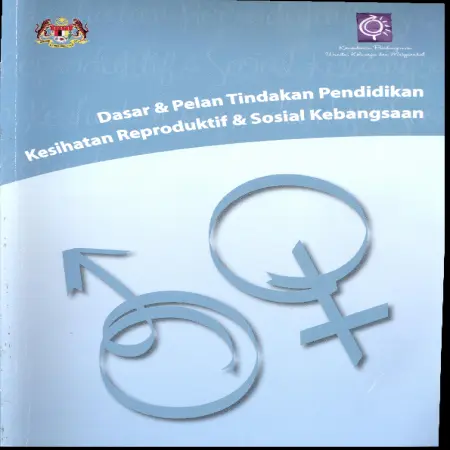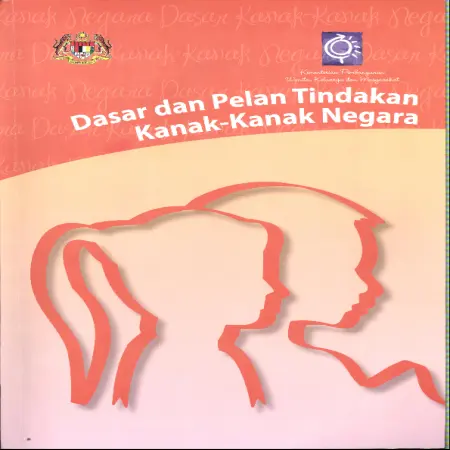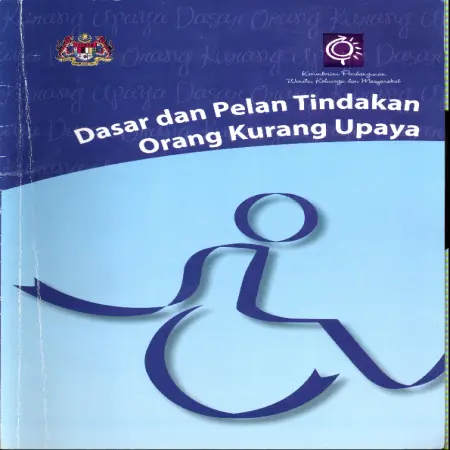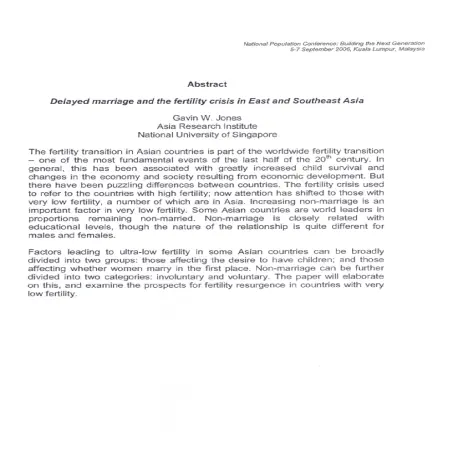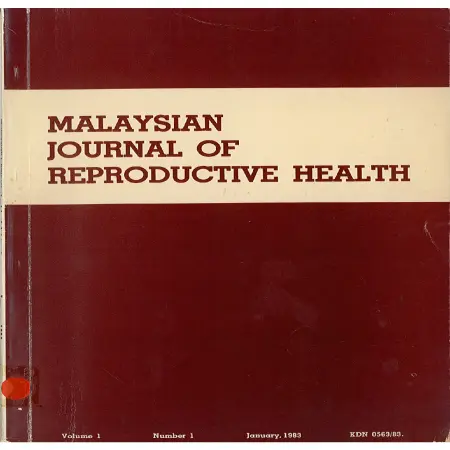Browse by Year
|
|
Dasar & Pelan Tindakan Pendidikan Kesihatan Reproduktif & Sosial Kebangsaan
Item Type: Act & Policy
Editor:
Year: 06/11/2009
Abstract: The National Reproductive and Social Health Education Policy that applies to all walks of life regardless of age, to increase the knowledge on sexual reproductive health among Malaysia and to encourage them to have a positive attitudes towards reproductive and social services.
Earlier it was known as PKRS Policy. However, in 2012, the Policy and Action Plan for National Reproductive and Social Health Education was known as PEKERTI Policy. Reproductive and social health education is fundamental to the development of strong and healthy human development, honorable and mutual respect. The policy takes into account the diversity of religion, culture and values of life in Malaysia.
Following the approval of the Parliament of Malaysia on the Policy and Action Plan for National Reproductive and Social Health Education (PEKERTI) in 2009, LPPKN through KPWKM has implemented the PEKERTI Programme at the kafe@TEEN Adolescent Centres, Program Khidmat Latihan Negara (PLKN), and schools.
|
|
|
|
|
|
Dasar dan Pelan Tindakan Kanak-Kanak Negara
Item Type: Act & Policy
Editor:
Year: 29/07/2009
Abstract: Children are a very important part of society, they are an asset for the country and the link for the country's development in the future. In 2008, there were 10.5 million (37.9%) children out of 27.7 million population. As such, the Government is very concern about the welfare and interests of children. In this regard, Malaysia has ratified the Convention on the Rights of the Child (CRC) on 17 February 1995. The Convention focuses on the welfare and lives of children that lead to aspects of survival, protection, development and participation. As a State Party to the CRC, Malaysia is very concerned and committed to the responsibility to ensure the safety and welfare of the children who are the heirs and future generation of the country. Interests of the child is clearly shown in the Statement of Vision 2020 in which the institution of the family and children is one of the focuses of priority in the country's efforts to achieve developed nation status in addition to creating a society that is fair and compassionate.
|
|
|
|
|
|
Dasar dan Pelan Tindakan Orang Kurang Upaya
Item Type: Act & Policy
Editor:
Year: 21/11/2007
Abstract: People with Disabilities (PWD) policy is based on the concept of equality of rights and opportunities for PWD to participate fully in society. This policy also emphasizes on human rights values such as integrity, honour and independence that will enable them to live independently.
|
|
|
|
|
|
Delayed marriage and the fertility crisis in East and Southeast Asia
Item Type: Conference or Workshop Item
Editor:
Year: 00/00/2006
Abstract: The fertility transition in Asian Countries is part of the worldwide fertility transition and one of the most fundamental events of the last half of the 20th century. In general, this has been associated with greatly increased child survival and changes in the economy and society resulting from economic development. But there have been puzzling differences between countries. The fertility crisis used to refer to the countries with high fertility but now attention has shifted to those with very low fertility, a number of which are in Asia.
|
|
|
|
|
|
Determinants of neonatal outcome in a Malaysian Maternity Hospital, 1980-1981
Item Type: Article
Editor:
Year: 00/01/1983
Abstract: The compilation and analysis of basic perinatal statistics in the Maternity Hospital, Kuala Lumpur is described. The study period covers the years 1980-1981. Determinants of neonatal mortality include very low birthweight (<1.5 kg), a gestational age of less than 32 weeks and clinical conditions of asphyxia, bacterial sepsis and respiratory distress syndrome. A proposal for a clinical classification of neonatal mortality is advanced and implications for a wider applicability of this approach is suggested to better evaluate perinatal performance in hospitals all over the country.
|
|
|
|





